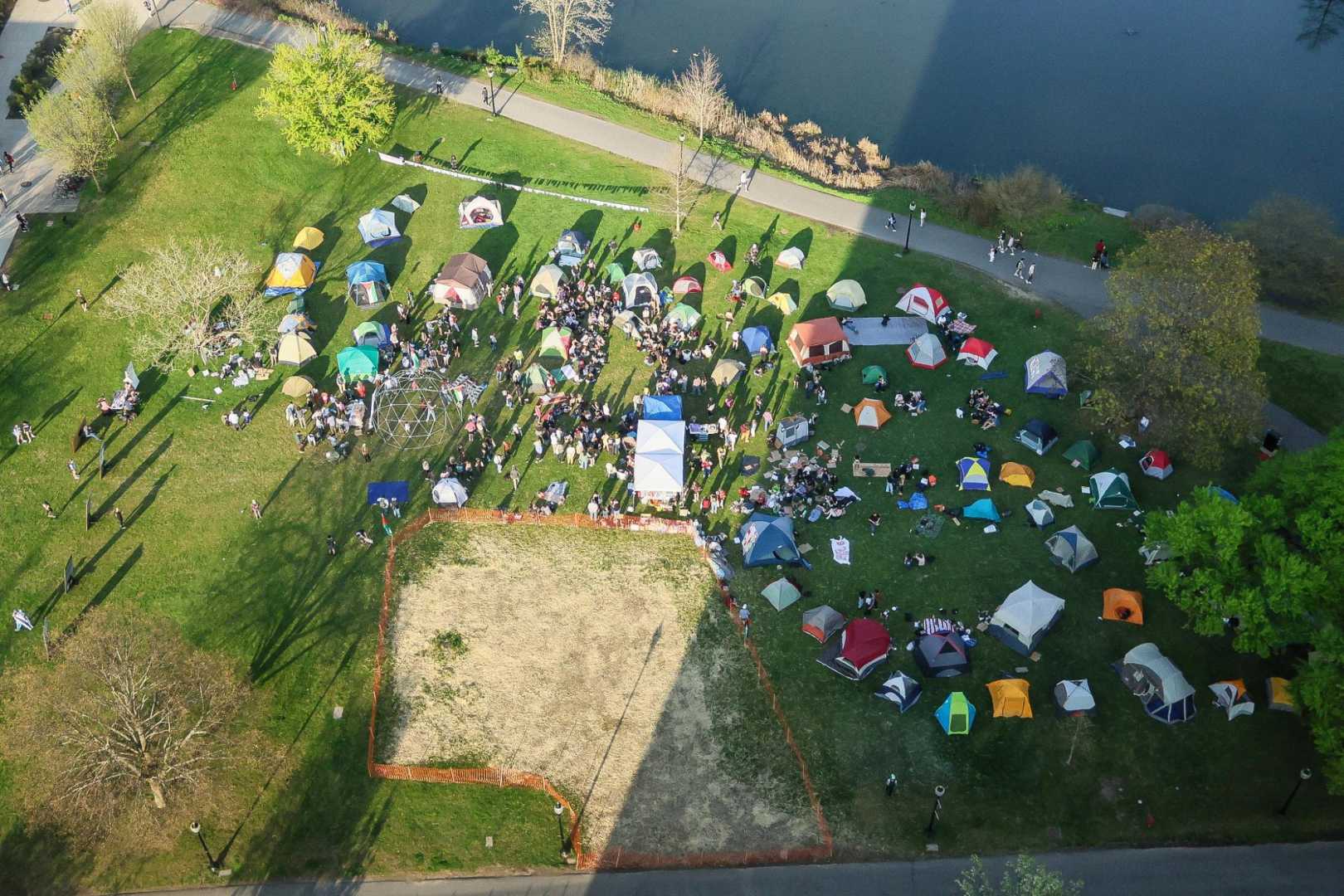Education
UMass Amherst Report Defends Police Response to Gaza Protest Encampment

AMHERST, Mass. — A report released Thursday by the University of Massachusetts Amherst found that the school’s decision to deploy police to dismantle a student protest encampment against the war in Gaza last year was “reasonable,” though it questioned whether alternative approaches could have been taken. The review, conducted by Boston-based law firm Prince Lobel, examined the events surrounding two protests in May 2024, which culminated in the arrest of 134 people.
The protests, organized by students on the South Lawn of the UMass Amherst campus, involved encampments that included fencing and other structures. School administrators said the issue was not the protest itself but the physical structures, which they claimed posed safety risks. “The assessment of the risks, especially of violence, was understandable based on the information it had about the encampments on its own campus and the chaos that was engulfing some other college campuses where encampments had been established,” the report stated.
UMass Amherst Chancellor Javier Reyes authorized the use of police to disband the encampment on May 7, 2024. The report found his decision “reasonable” but noted that other approaches, such as a “wait and see” strategy, might have been possible. “Even if (as we have found) the chancellor’s decision was reasonable, there is still a question of whether another road should have been taken,” the report said.
One protest leader interviewed for the report suggested that the encampment might have ended naturally as finals approached the following week. “When we asked her if the encampment had a ‘natural end point,’ she quickly replied, ‘Oh my God, yes, finals were next week,'” the report noted. A UMass Police Department official shared this assessment, suggesting the encampment could have “petered out” without police intervention.
However, the report also highlighted factors that complicated the situation. A planned face-to-face meeting between Chancellor Reyes and protesters delayed the final warning to dismantle the encampment. This delay allowed both protesters and police to gather in larger numbers, escalating tensions. “As a result of the delay, a very large and visible police force was positioned behind [a building] for an extended period, which became known to the protesters, who themselves called for reinforcements,” the report said.
By the time police intervened after 7 p.m., the situation had grown more volatile. “There were many more protesters and other people present, and the situation was highly fraught and complex,” the report stated. The Massachusetts State Police called for additional troopers, leading to a larger police presence and more arrests than might have occurred otherwise.
The report acknowledged the lasting impact of the incident on campus relations. “Those interviewed by the attorneys said they recognized that damage has been done; the trust between many students and the institution has been eroded,” it concluded.
The inquiry was commissioned by UMass Amherst to address concerns about the handling of the protests, which were part of a wave of campus demonstrations across the U.S. in response to the war in Gaza. The report provides a detailed account of the events but leaves open questions about whether alternative strategies could have achieved a different outcome.












